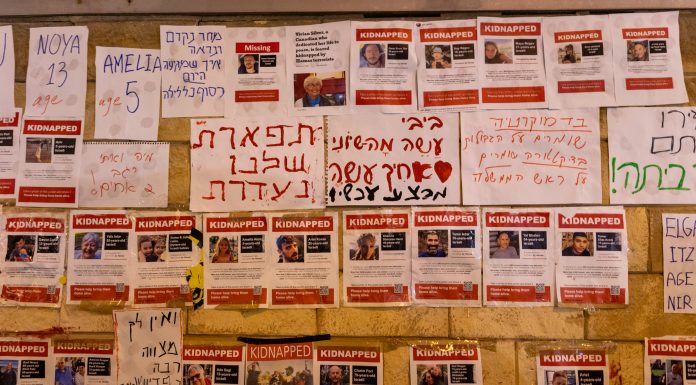Judge, jury and executioner: how the EU’s public health department set up its pet anti-vaping NGO to help restrict safer nicotine products
By Peter Beckett, co-Founder of Clearing the Air, a harm-reduction friendly news service which aims to help people who’ve benefitted from safer nicotine products make their views heard.
“Not very satisfactory” was how the European Ombudsman’s team described how the Commission’s DG SANTE – which is in charge of proposing long awaited new restrictions on safer nicotine products – responded to allegations that the NGO it hired to help them do so had a clear conflict of interest.
The context is a report on the Ombudsman’s decision to investigate SANTE for failing to manage conflicts of interest in awarding a contract to help it revise Europe’s tobacco rulebook. The report was obtained by Clearing the Air via an Access to Documents request, and centres on SANTE’s relationship with the European Network on Smoking Prevention, or ENSP.
On its face, this conflict seems obvious: the clue is in the name. An NGO called “the European Network on Smoking Prevention” is unlikely to be any more “impartial and objective” when looking at future policy on smoking than big tobacco. I’ve put “impartial and objective” in quotation marks because that’s the exact wording of the contract ENSP is working on.
The Ombudsman seems to agree, noting that there are “legitimate concerns as to the partiality and capacity of the NGO to deliver a fair and unbiased assessment”.
That won’t have been an easy conclusion for the Ombudsman to come to. The complaint was made by Tobacco Europe – big tobacco’s lobbyists – and the Ombudsman is unlikely to want to rule in their favour. Who can blame them?
The last time the Ombudsman looked into the Commission’s dealings with cigarette companies, it went out of its way to heap praise on DG SANTE for proactively publishing the details of meetings with tobacco lobbyists.
But here, they chose to open an investigation into DG SANTE itself. I’m told we’ll see a conclusion in the coming weeks.
Curious about tobacco harm reduction? @nannyfreestate and @lmstroud89 dive deep with @peterbeckett on the EU Tobacco Products Directive and how consumers can take action. https://t.co/VimRYQv11O pic.twitter.com/R5VCPd2TR0
— Taxpayers Protection Alliance (@Protectaxpayers) October 4, 2024
“We should be mindful of the reputational risk in this case”, the Ombudsman notes, “[w]hile the complaint is brought by a tobacco lobby…NGOs are still subject to COI [conflict of interest] rules and the Commission needs to ensure that its work on such topics is not biased and that the rules have been applied”.
“This is particularly true with alternative tobacco products such as e-cigarettes”, the Ombudsman concludes.
ENSP has strong views on “alternative tobacco products”, which it’s also tasked with looking at on behalf of DG SANTE. It has adopted a “clear position against all nicotine and tobacco products…and publicly lobbied to restrict these products”, according to the Ombudsman.
And that is where the problem lies.
The science on cigarettes is settled: smoking kills you and you should stop doing it. Even big tobacco – after much soul searching – finally decided to concede that point.
But the science on “alternative” products – vapes, nicotine pouches and so on – is hotly contested. Tobacco control allies of yesteryear now fight tooth and nail over whether safer nicotine products are the solution to the smoking epidemic or a menace to be stamped out.
For what it’s worth, my view is the former. We know that pouches and vapes are much safer than smoking and we know they help smokers quit at scale, so we should be encouraging smokers to switch to them at every opportunity.
Steep fall in young smokers in past decade, official data shows https://t.co/NUk5NYtjCk
— clearingtheair (@clearingthe_air) October 8, 2024
But back to the complaint. In its defence, SANTE argues that ENSP isn’t involved in policy formulation, but is just there to “facilitate the necessary contacts with experts”. If you believe that’s a merely technical role, as SANTE argues, I’ve got some magic beans to sell you.
Half of the tobacco control community wants safer products more or less banned, and the other half wants them readily available for smokers. ENSP is plainly in one of those camps. How likely is it that the experts with whom they facilitate contact represent both sides of the debate, or only the side ENSP agrees with?
We’ve put in another Access to Documents request asking DG SANTE for a list of the experts ENSP put their way. Let’s see what they say. But either way, it’s not credible to suggest that determining who a legislator speaks to is anything other than a political role.
I’m not hopeful of a forthcoming response. Both the Commission and the Ombudsman are still blocking our requests to see the documents SANTE submitted in its defence. From what I can tell, it’s not much of a defence.
Based on the minutes of a meeting the Ombudsman held with SANTE, who appeared to have shown up mob handed with at least three lawyers and three Heads of Unit, the defence centres on a declaration ENSP made affirming that they did not have any conflict of interest.
We know from the minutes of that meeting that the declaration – signed by ENSP – says that staff members working on the contract had not had “any professional involvement in any project related to tobacco” in the last four years. I suppose it’s possible that ENSP hired an entirely new team for this project, but it seems unlikely.
Assuming they didn’t, why did they declare something that’s plainly untrue? Why did the Commission accept such a clearly ridiculous declaration? Perhaps they agree with ENSP’s statement to EurActiv, in which the Secretary General said that the “very concept” of a conflict of interest was not applicable to a non-profit organisation with “no economic interest whatsoever in the tobacco business”.
Leave aside that the very existence of ENSP is predicated on the existence of big tobacco, as is its funding: more than two thirds of which comes from the European Commission.
To suggest that a non-profit cannot by definition have a conflict of interest is clearly absurd. Tobacco Europe is set up as a non-profit, but not even they would have the audacity to claim that NGO status puts them above conflicts of interests.
The Commission has refused to allow the Ombudsman to publish the declaration ENSP signed, alongside the other supporting documents SANTE uses in its defence. We’re trying to get hold of them, and they hardly look like state secrets: alongside the declaration there is some correspondence between the Commission and the contractors and some contractual documents.
What’s to see there, I wonder?
If the Ombudsman were to now find in favour of the Commission without publishing those documents, it would call into question the impartiality of the Ombudsman writ large.
The Commission is also trying desperately to walk back ENSP’s public comments on conflicts of interest, telling the Ombudsman that the comments were “taken out of context and misinterpreted”. Ah, that old chestnut.
But at this point, the damage has been done. How can anyone defend the credibility of policy proposals that the SANTE makes based on such a flawed process of information gathering? Rather that pursue evidence-based policy, an episode like this shows SANTE wants policy-based evidence.
That’s bad for the people most affected by the impending restrictions on safer nicotine products: smokers who needs safer alternatives. It’s also bad for the reputation of the EU. A few weeks ago, I wrote that it wasn’t illogical for vapers to turn to populists whose narrative centres on how Brussels doesn’t care about the little guy. It’s episodes like this that provide the evidence for it.
Huh. If only there hadn't been a concerted campaign to ban all the legal products then this might now be happening.
Who organised that campaign, I wonder? https://t.co/dwVx8KA3c1
— Peter Beckett (@peterbeckett) October 12, 2024
Disclaimer: www.BrusselsReport.eu will under no circumstance be held legally responsible or liable for the content of any article appearing on the website, as only the author of an article is legally responsible for that, also in accordance with the terms of use.













